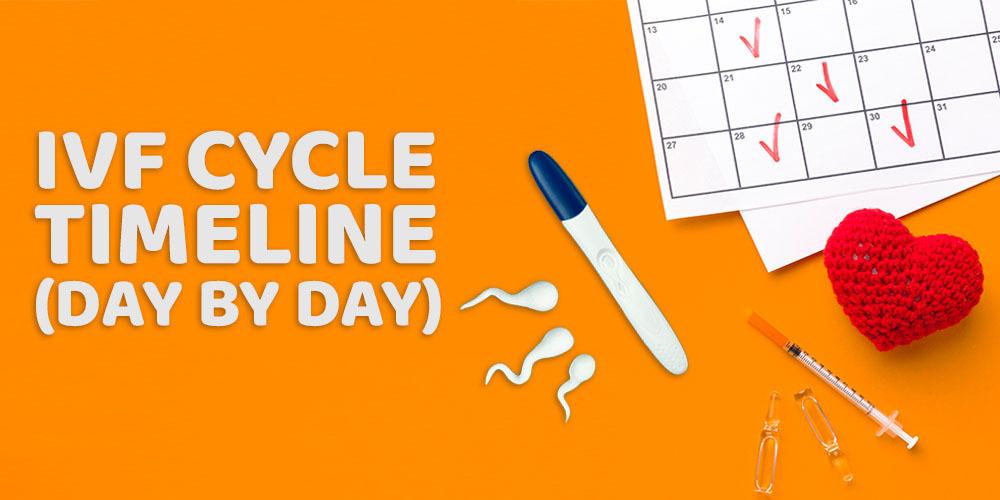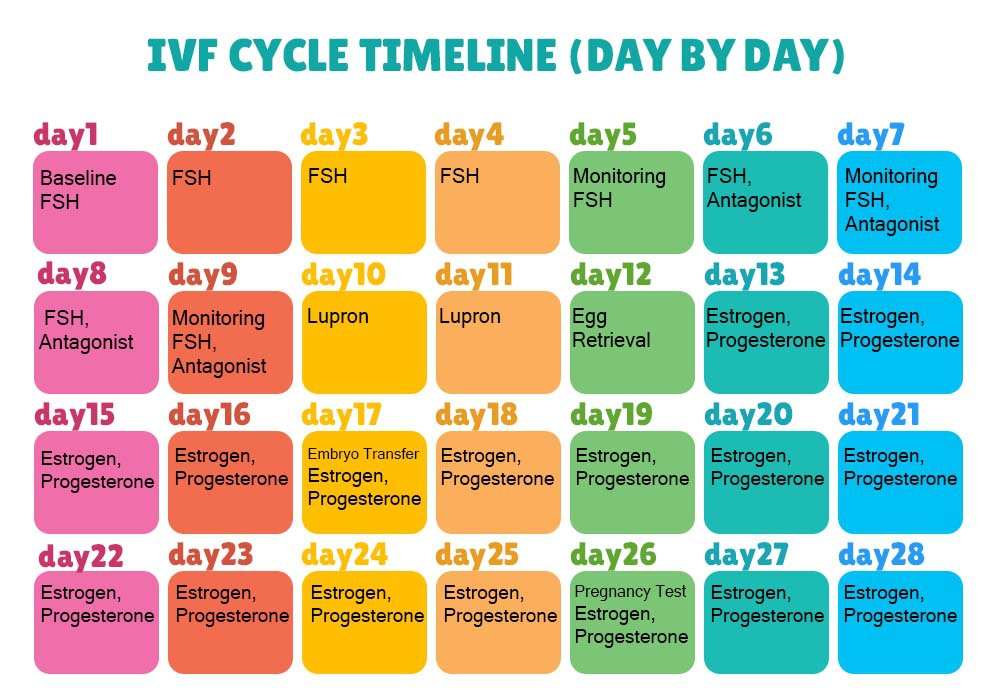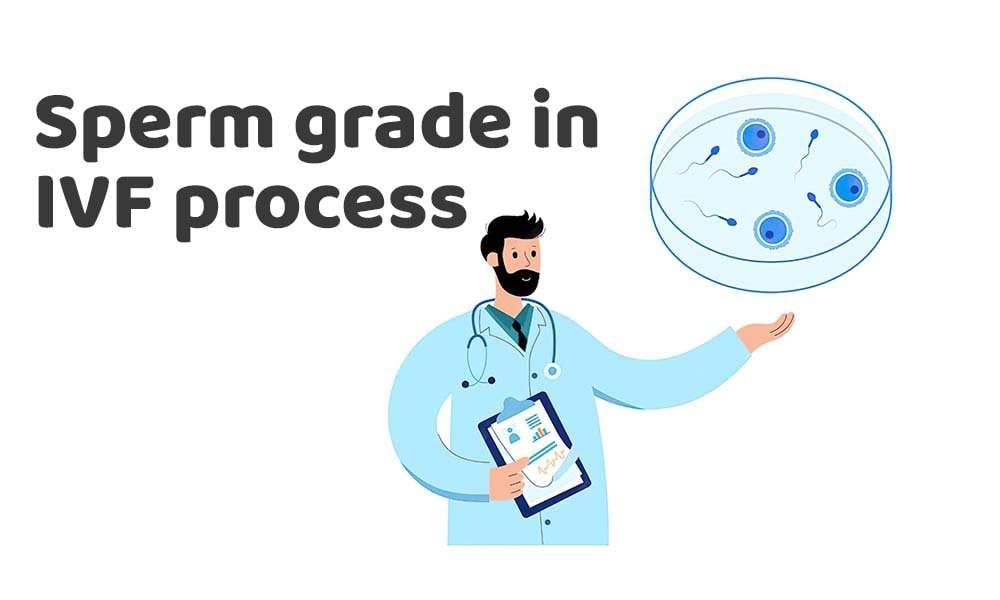

Before starting the IVF process, several important tests are conducted to ensure the best chances of success. Pre-IVF testing helps doctors understand your overall health, identify any potential issues, and create a personalized treatment plan tailored to your needs. Here are some key aspects of pre-IVF testing:
An IVF cycle refers to one complete round of in vitro fertilization, a meticulously timed process designed to help individuals or couples achieve pregnancy.
This cycle aligns closely with the body's natural menstrual cycle, beginning on the first day of menstruation and typically concluding with a blood test to confirm pregnancy.
The IVF cycle is not a standalone occurrence but part of a personalized treatment plan tailored to each patient. Depending on the protocol set by your fertility specialist, you may be advised to start medications or hormonal preparations before the cycle officially begins. These early steps are integral to optimizing the outcomes of the IVF process day by day, ensuring that your body is ready for the advanced stages of the cycle.
Throughout an IVF cycle, precision, timing, and expert guidance are essential. Working with professionals, such as those at TebMedTourism, can provide invaluable support and a clear understanding of your treatment journey, ensuring every step aligns with your unique needs and goals.To learn more about the IVF process in Iran, be sure to check out our comprehensive article, IVF in Iran. Or, click on the banner below for a free consultation and let our experts guide you through this process.
Embarking on an IVF Timeline day by day can be both exciting and overwhelming. Understanding what happens each day helps patients better navigate the emotional and physical challenges of this advanced reproductive technology. In this guide, We break down the IVF calendar step by step, so you know exactly what to expect at each stage.
The first day of your menstrual period marks the beginning of your IVF cycle. This is when your reproductive journey officially starts. Your fertility specialist will help you identify the exact start date of your period, as every individual’s cycle is unique. This is an important milestone that sets the stage for all subsequent steps.
Within 2–3 days of your period, you’ll visit the clinic for a baseline ultrasound and bloodwork to assess hormone levels such as follicle-stimulating hormone (FSH) and estradiol. From this point, IVF stimulation day by day begins, where fertility medications stimulate the ovaries to produce multiple eggs.These medications are administered for approximately 8–14 days, depending on your response to treatment.
Around day 12, once the eggs are mature, you’ll undergo the egg retrieval process, also known as follicular aspiration or egg "pick up" (EPU). This minimally invasive outpatient procedure is performed under general anesthesia, ensuring the patient remains unconscious and comfortable for 20–30 minutes.
During the procedure, the fertility specialist uses advanced ultrasound guidance to carefully insert a needle into each ovary to extract the eggs housed in fluid-filled follicles. Precision is critical, as every millimeter counts in this delicate process. On average, 8–15 eggs are harvested, although this number may vary depending on factors such as age and medical history. The extensive monitoring of your IVF cycle allows the fertility team to provide an accurate estimate of the expected egg yield.
On the morning of the egg retrieval, the male partner or donor provides a fresh sperm sample, which is then prepared in the laboratory for fertilization. This preparation process involves a thorough evaluation of the sample under sophisticated microscopes to identify the most viable sperm.
Sperm quality is assessed based on specific parameters, including motility, morphology, and concentration. Assigning grades (A, B, C, D) is a common practice, with morphologically healthy sperm selected for fertilization. A sperm is considered to have normal morphology if it is neither too fat or too thin, with a tail that is neither too long or too short. Experts spend years honing their ability to recognize these characteristics, ensuring only the best sperm are selected for each egg.
The minimum requirements for sperm quality in the IVF process include a concentration of at least 10 million spermatozoa per milliliter, with 30% motility, 15% progressive motility, and 20% normal morphology. These rigorous standards ensure that the healthiest sperm are used to maximize the chances of successful fertilization.

The retrieved eggs are fertilized in the lab. In traditional IVF, approximately 50,000 active sperm are combined with each egg in a culture dish to facilitate fertilization. Alternatively, intracytoplasmic sperm injection (ICSI) may be used, where a single sperm is directly injected into an egg using a fine needle (micropipette).
In some cases, you may choose to have your embryo transferred to the uterus of a surrogate mother. We provide this option, and for more information, you can refer to our detailed article, Surrogacy in Iran.
Injectable medications are a standard and essential component of in vitro fertilization (IVF) treatment. Depending on your individualized IVF protocol, you may need to administer one or two injections daily throughout the cycle. These injections typically contain the following hormones:
Both hormones work synergistically to optimize your body’s response to IVF treatment.
The timing and dosage of IVF injections are carefully planned to align with your specific treatment cycle. Your fertility specialist will provide a detailed IVF injections schedule, outlining when to administer each injection. Adhering strictly to this IVF injections schedule is crucial to ensuring the success of your treatment, as the medications are designed to synchronize your ovarian response with other steps in the IVF process.
Injections may begin during the early phase of your menstrual cycle and continue for several days or weeks, depending on how your body responds to the medication. Regular monitoring through blood tests and ultrasounds will guide any necessary adjustments to your injection schedule.
The duration of IVF injections typically depends on your personalized treatment plan and how your body responds to the medication. In most cases, IVF injections are administered daily for about 8 to 14 days during the ovarian stimulation phase. This phase is designed to stimulate the ovaries to produce multiple eggs, increasing the chances of successful fertilization.
Your fertility specialist will closely monitor your progress through regular blood tests and ultrasound scans to evaluate how your body is responding to the injections. Based on these assessments, the duration of injections may be adjusted to optimize the outcomes of your IVF cycle.
After completing the stimulation phase, a trigger injection is administered to induce the final maturation of the eggs, preparing them for retrieval. The entire process is carefully timed to ensure the best possible synchronization between the development of the eggs and the subsequent procedures in the IVF cycle.
Not every woman finds IVF injections painful, which is something to keep in mind. For most patients, the shots cause only mild discomfort, similar to a small pinch, and any unpleasant feeling is over in a few seconds. Proper technique, icing the injection site, or involving a partner for support can make the process even more manageable.
Understandably, the thought of self-administering injections can be intimidating at first. However, your fertility specialist and their team will provide comprehensive guidance, demonstrating how and where to administer each injection safely and effectively.
Many patients find it helpful to involve their partner or a trusted support person in the process. By attending training sessions together, both of you can learn the technique, easing the process and fostering a sense of shared involvement in your fertility journey. With practice and the right support, administering IVF injections can become a manageable part of your treatment routine.
After an unsuccessful IVF cycle, it’s natural to feel disappointed, but it is important to remind yourself that you should not lose hope and you can always try again. The timing for another attempt depends on several factors, including your physical recovery and the advice of your healthcare provider.
Doctors generally recommend waiting at least one full menstrual cycle before starting a new attempt. This allows your body to return to its natural rhythm and ensures your hormonal levels have normalized, creating the best possible conditions for a subsequent cycle. Your doctor will also review the results of the previous cycle to identify any changes or adjustments that may improve the chances of success in the next attempt. Based on factors like age, ovarian reserve, and overall health, they’ll help determine the optimal timing for your next cycle.
For many individuals, the waiting period between IVF cycles can be the hardest stage of IVF. The uncertainty of outcomes, coupled with the emotional toll of anticipation, can make this phase feel especially challenging. Taking time to recover physically and emotionally, while staying hopeful, is key to navigating this difficult stage with resilience.
Remember, many individuals and couples have faced similar challenges and found success after multiple attempts. Your journey may be difficult, but with persistence and the right support, your dream is still within reach. By following medical guidance and ensuring you’re fully prepared, you can approach the next IVF cycle with renewed hope and confidence.
Understanding the IVF process is the first step, but every journey is unique and requires personalized guidance. Our team of fertility specialists is here to support you every step of the way. Your dream of parenthood is closer than you think—let us help you make it a reality. Click on the banner below to connect with our experts and get answers to your specific questions.
The IVF process can be challenging for many people, so it's completely normal to have a lot of questions—here, we will address some of the most frequently asked ones to help you feel more informed and confident.
An IVF cycle typically starts on the first day of your menstrual period. From there, hormone injections begin to stimulate egg production. Your fertility specialist will monitor progress and guide the next steps, like egg retrieval and embryo transfer.
IVF injections usually start on day 2 or 3 of your menstrual cycle. This timing aligns with the stimulation phase to encourage egg growth. Your doctor will confirm the exact schedule based on your treatment plan.
A trigger shot is an injection of hormones, typically human chorionic gonadotropin (hCG), used in fertility treatments. It helps mature the eggs in the ovaries and prepares them for ovulation. This shot is usually timed to optimize the success of egg retrieval or timed intercourse.
Egg retrieval is typically performed on day 12 of the cycle, approximately 36 hours after the trigger shot.
A frozen embryo transfer (FET) typically occurs around cycle days 19–21 in a natural cycle. For medicated cycles, the timing depends on hormone preparation. Your doctor will schedule the transfer to match your uterine lining's optimal condition.

Comments & Questions